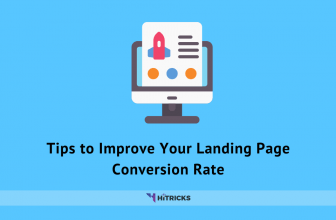In today’s digitized world, the education landscape is undergoing a significant transformation. Artificial Intelligence (AI) is at the forefront of this change, making waves in classrooms, research labs, and even the ways students approach their academic responsibilities. From seeking out resources to streamline their study processes to deciding to buy masters dissertation online, students are optimizing their educational journey using technology, especially AI. But what drives this shift towards AI? Let’s delve into the reasons behind this growing trend.
- Personalized Learning Experience:
- Automation of Routine Tasks:
- Enhancing Engagement Through Virtual Reality (VR) and Augmented Reality (AR):
- Facilitating Research with AI:
- Offering 24/7 Assistance with Chatbots:
- Collaboration and Networking:
- AI in Test Preparation and Skill Development:
- Assisting Students with Disabilities:
- Predicting Student Performance:
- A Boon for Distance Learning:
Personalized Learning Experience:
One of the standout benefits of AI in education is personalization. Traditional teaching methods often apply a one-size-fits-all approach, but with AI-driven platforms, content can be tailored to individual student needs. These systems analyze students’ interactions, their response times, and correct and incorrect answers, and then adapt the content accordingly. The result? A curriculum that adjusts to each student’s strengths, weaknesses, and pace.
Automation of Routine Tasks:
Nobody likes busy work, and this is where AI shines. With tools like grading software, educators save time on routine tasks, enabling them to focus more on teaching. For students, AI-driven tools can summarize lengthy articles, suggest additional resources based on interest, or even highlight areas in their work that need improvement.
Enhancing Engagement Through Virtual Reality (VR) and Augmented Reality (AR):
Both VR and AR offer immersive educational experiences. While VR places students in a completely virtual environment, AR overlays digital information into the real world. Students studying history, for instance, can embark on a virtual tour of ancient civilizations, making the learning process more engaging and memorable.
Facilitating Research with AI:
Research is integral to academia, and AI has become an indispensable tool in this domain. AI-driven tools sift through large datasets quickly, identifying patterns or correlations that might take humans much longer to spot. For students involved in high-level research, especially those in fields like data science, genetics, or even economics, AI assists in handling vast amounts of data effectively. You can even create templates that make data collection and analysis easier.
Offering 24/7 Assistance with Chatbots:
Ever had a burning question at 2 a.m.? Enter the educational chatbot. These AI-driven assistants provide answers to frequently asked questions, guide students through complex processes, or even assist in areas like language learning. While it may not offer 100% factual information on data-driven questions, it helps you understand and analyze different concepts.
Collaboration and Networking:
AI doesn’t only offer solo learning experiences; it also fosters collaboration. With AI-powered platforms, students can collaborate on projects in real time, receive feedback, or brainstorm ideas. Moreover, AI can suggest collaborators based on students’ interests, expertise, or past projects.
AI in Test Preparation and Skill Development:
Preparing for tests is a significant stressor for many students. AI-driven platforms analyze previous question patterns, gauge student proficiency in different areas, and then provide targeted preparation material. Furthermore, these platforms also offer feedback on mock tests, helping students identify areas they need to work on.
Assisting Students with Disabilities:
AI has brought about a revolution in inclusive education. Voice-activated assistants help visually impaired students by reading out material, while predictive text assists those with dyslexia. AI-driven tools also provide real-time translations for students who speak different languages, making education more accessible to all.
Predicting Student Performance:
Through the analysis of student data, AI can predict which students are at risk of falling behind. This gives educators a chance to intervene early, providing additional resources or tailored support. Additionally, AI can provide real-time feedback on student progress, enabling educators to adjust their teaching strategies and resources accordingly. Overall, AI has the potential to revolutionize the education system and make it more efficient, effective, and equitable for all.
A Boon for Distance Learning:
With the recent surge in remote learning, AI has proven invaluable. It facilitates seamless online classes, automates administrative tasks, and offers a personalized learning experience even in the virtual classroom.
As Harvard Business Review rightly mentions, while AI has its limitations, its potential in education is vast. Students today are digital natives. For them, incorporating AI into their academic pursuits is not just about convenience; it’s about optimizing their learning in a rapidly evolving world.
However, like all tools, the true value of AI lies in how it’s used. It’s essential for educators, parents, and students to approach AI as a complement to traditional learning methods rather than a replacement. With the right balance, the future of education, powered by AI, looks promising.
Nirmal Sarkar is a Biotechnologist from the city of Joy, Kolkata. He is the founder of this blog and covers a wide range of topics from Gadgets to Software to Latest Offers. You can get in touch with him via nirmal@hitricks.com








